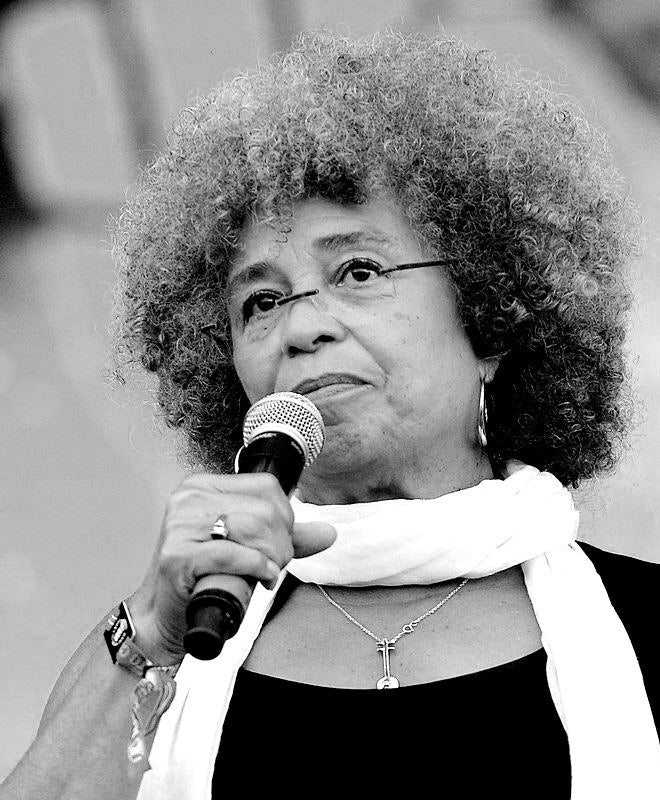Bio
Through her activism and her scholarship over the last decades, Angela Davis has been deeply involved in our nation’s quest for social justice. Her work as an educator – both at the university level and in the larger public sphere – has always emphasized the importance of building communities of struggle for economic, racial, and gender equality.
Professor Davis’ teaching career has taken her to San Francisco State University, Mills College, and UC Berkeley. She has also taught at UCLA, Vassar, the Claremont Colleges, and Stanford University. She has spent the last fifteen years at the University of California Santa Cruz where she is Professor of History of Consciousness, an interdisciplinary Ph.D program, and Professor of Feminist Studies.
Angela Davis is the author of eight books and has lectured throughout the United States as well as in Europe, Africa, Asia, Australia, and South America. In recent years a persistent theme of her work has been the range of social problems associated with incarceration and the generalized criminalization of those communities that are most affected by poverty and racial discrimination. She draws upon her own experiences in the early seventies as a person who spent eighteen months in jail and on trial, after being placed on the FBI’s “Ten Most Wanted List.” She has also conducted extensive research on numerous issues related to race, gender and imprisonment. Her most recent books are Abolition Democracy and Are Prisons Obsolete? She is now completing a book on Prisons and American History.
Angela Davis is a member of the executive board of the Women of Color Resource Center, a San Francisco Bay Area organization that emphasizes popular education – of and about women who live in conditions of poverty. She also works with Justice Now, which provides legal assistance to women in prison and engages in advocacy for the abolition of imprisonment as the dominant strategy for addressing social problems. Internationally, she is affiliated with Sisters Inside, a similar organization based in Queensland, Australia.
Like many other educators, Professor Davis is especially concerned with the general tendency to devote more resources and attention to the prison system than to educational institutions. Having helped to popularize the notion of a “prison industrial complex,” she now urges her audiences to think seriously about the future possibility of a world without prisons and to help forge a 21st century abolitionist movement.


